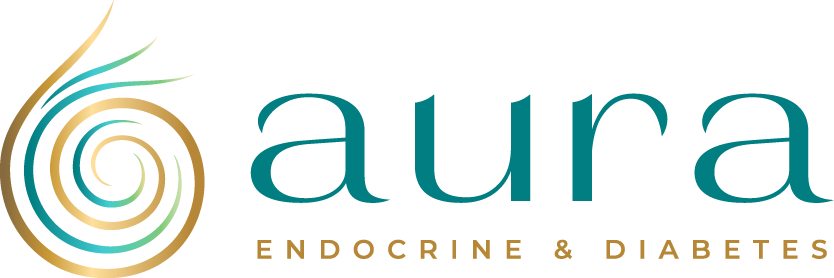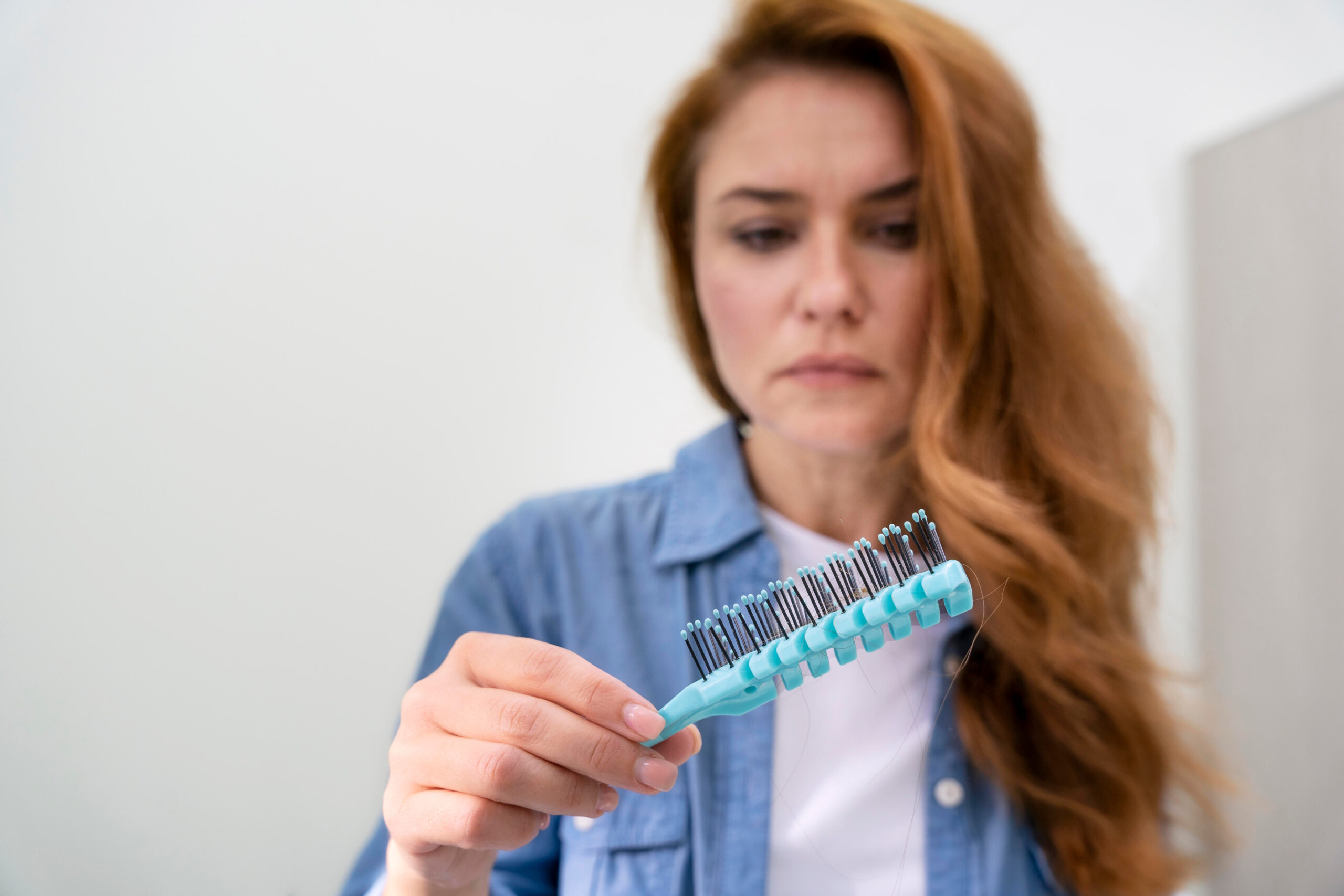Introduction: Why Thyroid Health Matters
The thyroid gland is a small, butterfly-shaped gland located in your neck, but it plays a huge role in your overall health. This vital gland produces hormones that regulate your metabolism, energy levels, and body temperature. When your thyroid isn’t functioning properly, it can lead to significant changes in how your body operates. Conditions like hypothyroidism (underactive thyroid) and hyperthyroidism (overactive thyroid) are common thyroid disorders that affect millions of people globally.
Understanding the signs, symptoms, and treatments of these conditions can help you take control of your thyroid health. At Aura Endocrine and Diabetes, we specialize in diagnosing and treating a wide range of thyroid disorders, from hypothyroidism to thyroid nodules and cancer. Let’s dive into the essential role the thyroid plays and how you can maintain optimal thyroid function.
The Thyroid Gland: What Does It Do?
The thyroid produces thyroid hormones—mainly triiodothyronine (T3) and thyroxine (T4)—which have a significant impact on nearly every cell in your body. These hormones regulate your:
- Metabolism: How your body converts food into energy.
- Heart rate: The speed at which your heart beats.
- Body temperature: Maintaining a consistent body temperature.
- Growth and development: Especially important in infants and children.
When your thyroid produces either too much or too little of these hormones, it can throw your body’s balance off, leading to a variety of symptoms and health issues.
What is Hypothyroidism?
Hypothyroidism is a condition where your thyroid does not produce enough hormones to meet your body’s needs. This results in a slowed metabolism, which can cause various symptoms.

Common Symptoms of Hypothyroidism:
Depression or mood changes: Feeling low, sluggish, or experiencing memory issues.
Fatigue: Constant tiredness, even after a good night’s sleep.
Weight gain: Unexplained weight gain or difficulty losing weight.
Cold intolerance: Feeling cold all the time, even in warm weather.
Dry skin and hair: Skin may become dry and flaky, and hair may become brittle or fall out.
Diagnosis:
Hypothyroidism is diagnosed with a TSH (Thyroid Stimulating Hormone) blood test. High TSH levels indicate that your body is trying to stimulate the thyroid to produce more hormones but is not succeeding. Additional tests, such as measuring T4 and thyroid antibodies, may also be conducted to determine the cause of hypothyroidism.
Treatment:
The most common treatment for hypothyroidism is thyroid hormone replacement therapy. Medications like levothyroxine replace the hormones your thyroid isn’t producing, helping to normalize metabolism and alleviate symptoms.
What is Hyperthyroidism?
Hyperthyroidism, on the other hand, is a condition where your thyroid produces too much hormone, leading to a faster metabolism. This can cause the body to go into overdrive, with noticeable symptoms.
Common Symptoms of Hyperthyroidism:
- Unexplained weight loss: Despite having a normal or increased appetite.
- Rapid heart rate (tachycardia): Your heart may beat faster than usual, even at rest.
- Nervousness or irritability: Feeling on edge, jittery, or anxious.
- Heat intolerance: Feeling hot or sweating more than usual.
- Tremors: Shaking hands or feeling unsteady.
Diagnosis:
Hyperthyroidism is diagnosed through blood tests that measure your levels of TSH, T3, and T4. A low TSH level combined with elevated T3 or T4 indicates hyperthyroidism. Additional diagnostic tools like a thyroid scan or radioactive iodine uptake test may be used to determine the underlying cause.
Treatment:
Treating hyperthyroidism often involves antithyroid medications, such as methimazole, which help reduce hormone production. Radioactive iodine therapy can also be used to shrink the thyroid gland and reduce hormone output. In severe cases, thyroid surgery may be recommended to remove part or all of the thyroid gland.
Thyroid Nodules: What Are They?
Thyroid nodules are lumps that form within the thyroid gland. Most thyroid nodules are benign (non-cancerous), but some may be cancerous, which is why it’s important to have them evaluated by a healthcare professional.
Symptoms of Thyroid Nodules:
- A noticeable lump in the neck.
- Difficulty swallowing or breathing.
- Hoarseness or changes in voice.
- Some nodules may produce excess thyroid hormones, causing symptoms of hyperthyroidism.
Diagnosis:
A thyroid ultrasound is typically used to evaluate thyroid nodules. If a nodule appears suspicious, a fine-needle aspiration (FNA) biopsy can be performed to collect a tissue sample for further analysis. At Aura Endocrine and Diabetes, we offer ultrasound-guided biopsies to ensure accurate diagnosis.

Treatment:
Benign nodules may not require treatment but will be monitored for any changes. If a nodule is malignant, surgery is usually necessary to remove it. In some cases, radioactive iodine may also be used to target and destroy thyroid tissue.
Thyroid Cancer: Early Detection and Treatment
Though thyroid cancer is relatively rare, it’s one of the most treatable forms of cancer, especially when detected early. The most common types of thyroid cancer include papillary thyroid cancer and follicular thyroid cancer.
Symptoms of Thyroid Cancer:
- A hard lump in the thyroid.
- Swollen lymph nodes in the neck.
- Persistent hoarseness or difficulty swallowing.
Diagnosis:
Early detection is key to treating thyroid cancer successfully. We use thyroid ultrasounds and fine-needle aspiration biopsies to diagnose thyroid cancer. Our team at Aura is equipped with advanced diagnostic tools to ensure accurate results.
Treatment:
Treatment for thyroid cancer usually involves surgery to remove the cancerous tissue, followed by radioactive iodine therapy to destroy any remaining thyroid cells. The prognosis for thyroid cancer is excellent, especially when treated early.
The Importance of Thyroid Ultrasound and Biopsies
At Aura Endocrine and Diabetes, we offer in-house thyroid ultrasounds and ultrasound-guided biopsies to help diagnose and monitor thyroid conditions. Dr. Igala, who is ECNU-certified (Endocrine Certification in Neck Ultrasound), ensures that every patient receives expert care during these procedures.
Why Thyroid Ultrasound is Important:
- It helps visualize the size, shape, and structure of the thyroid gland.
- It can detect nodules, cysts, or tumors that may not be felt during a physical exam.
- Ultrasounds guide biopsies, ensuring accurate sampling of suspicious nodules.
Thyroid Nodule Biopsy:
When a thyroid nodule is discovered, a biopsy may be necessary to rule out cancer. A fine-needle aspiration biopsy is a minimally invasive procedure that involves inserting a small needle into the nodule to collect cells for analysis. This procedure is quick and typically performed in the office.
Conclusion: Take Charge of Your Thyroid Health
Thyroid disorders can have a significant impact on your health and quality of life, but they are manageable with the right care. Whether you’re dealing with hypothyroidism, hyperthyroidism, thyroid nodules, or even thyroid cancer, early detection and treatment are key to successful management.
At Aura Endocrine and Diabetes, we specialize in the diagnosis and treatment of thyroid disorders. From comprehensive thyroid ultrasounds to in-office biopsies, we are dedicated to providing personalized care for your thyroid health. If you’re experiencing symptoms of thyroid imbalance, don’t hesitate to schedule an appointment with us today.
Call to Action (CTA):
Concerned about your thyroid health? Contact Aura Endocrine and Diabetes to schedule a consultation and take the first step toward better thyroid health.




